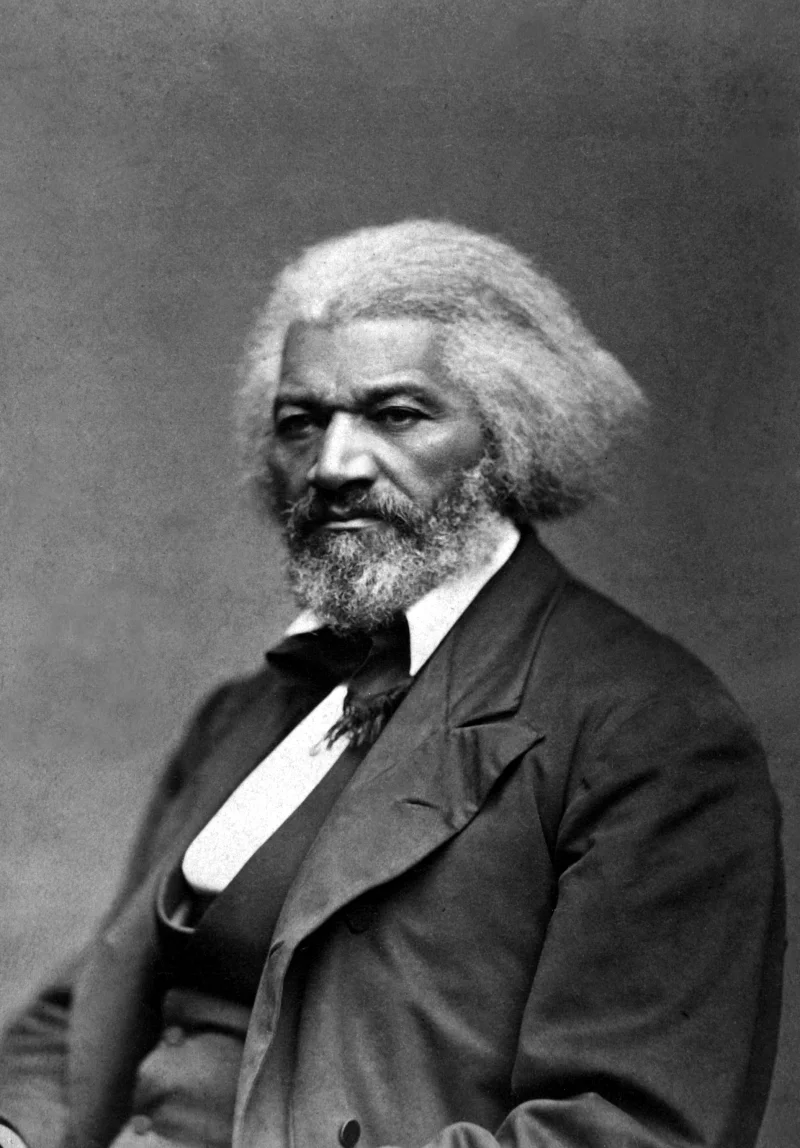Short Summary
Frederick Douglass was a prominent African American social reformer, abolitionist, orator, writer, and statesman. Born into slavery, he escaped at the age of 20 and went on to become a leading voice in the abolitionist movement. Famed for his powerful speeches and writings, Douglass championed the rights of African Americans and women, leaving an indelible mark on American society. His narrative and autobiographies remain seminal works in American literature.
Early Life & Education
Born in February 1818 in Talbot County, Maryland, Frederick Douglass was the son of an enslaved woman and an unknown white father. Separated from his mother at an early age, he was raised by his grandmother until the age of eight when he was sent to work for Hugh Auld in Baltimore. It was there that he learned to read and write with the help of Auld’s wife, Sophia. His early exposure to literacy ignited a lifelong passion for education and freedom. Despite the harsh conditions of his early life, Douglass's quest for knowledge became the foundation of his advocacy work.
Career Highlights
After escaping slavery in 1838, Douglass settled in New Bedford, Massachusetts, where he began attending abolitionist meetings. His eloquence and powerful storytelling quickly gained attention, and he became a lecturer for the Massachusetts Anti-Slavery Society. In 1845, he published his first autobiography, "Narrative of the Life of Frederick Douglass, an American Slave," which became an instant success. Douglass also founded the abolitionist newspaper "The North Star" in 1847, further cementing his role as a leading voice against slavery and for civil rights. Throughout his career, he held various government positions, including U.S. Minister to Haiti.
Major Achievements
- Published "Narrative of the Life of Frederick Douglass, an American Slave," a seminal work in abolitionist literature.
- Founded "The North Star," an influential anti-slavery newspaper.
- Served as a prominent orator and leader in the abolitionist movement.
- Held several important government positions, including U.S. Minister to Haiti.
Famous Quotes
- "If there is no struggle, there is no progress."
- "Once you learn to read, you will be forever free."
Interesting Facts
- Douglass was the most photographed American of the 19th century, using photography as a tool for social change.
- He was the first African American nominated for Vice President of the United States.
- Douglass was an ardent supporter of women's suffrage and attended the Seneca Falls Convention.
Legacy / Influence
Frederick Douglass's legacy as a champion of human rights and equality remains influential today. His writings and speeches continue to inspire movements for social justice and civil rights. Douglass paved the way for future generations of African American leaders and thinkers, and his life's work underscored the transformative power of education and advocacy in the fight for freedom and equality.
FAQ
Q: Why is Frederick Douglass famous?
A: He is renowned for his work as an abolitionist, orator, writer, and advocate for the rights of African Americans and women.
Q: How did Frederick Douglass escape slavery?
A: He escaped by boarding a train to the North, using borrowed identification papers, and traveling to freedom in New York City in 1838.
Q: What is "The North Star"?
A: It was an anti-slavery newspaper founded by Douglass in 1847, dedicated to abolitionist causes and civil rights.








